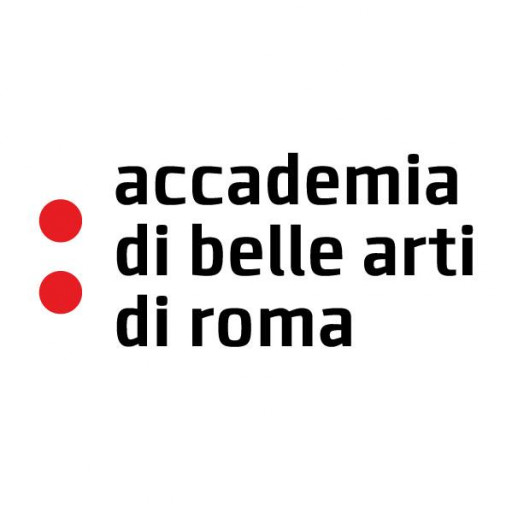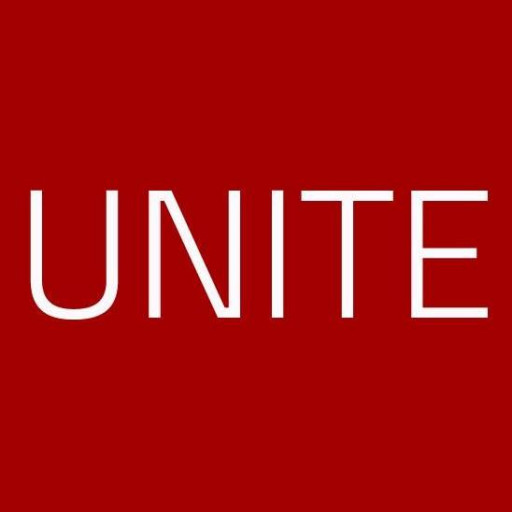Photos of university / #uva_amsterdam
The Bachelor's programme in Media and Culture at the University of Amsterdam offers a comprehensive exploration of the dynamic fields of media, communication, and cultural studies. This programme is designed to equip students with critical insights into how media influences society, shapes cultural identities, and drives social change in an increasingly digital world. Throughout the course, students engage with a wide array of topics, including media theory, media history, digital communication, popular culture, and media production. The curriculum balances theoretical disciplines with practical skills, enabling students to analyze media content, understand media institutions, and develop their own media projects.
Students benefit from the university’s strong emphasis on interdisciplinary learning, combining perspectives from sociology, anthropology, history, and media studies to foster a nuanced understanding of contemporary media landscapes. The programme encourages active participation in discussions, research projects, and internships to prepare students for careers in media analysis, journalism, communications, cultural management, and digital content creation. Graduates will be equipped with critical thinking abilities, media literacy, and a global perspective, essential for thriving in a rapidly evolving media environment.
The Media and Culture programme at the University of Amsterdam is characterized by its vibrant academic community, excellent faculty, and state-of-the-art research facilities. Students have access to various resources, including media labs, libraries, and an extensive network of industry contacts, to support their academic and professional development. In addition to classroom learning, students are encouraged to participate in exchange programmes, internships, and collaborative projects, enriching their educational experience and enhancing their employability.
Upon graduation, students will possess the analytical skills and cultural awareness needed to understand media in a global context and contribute thoughtfully to media production, policy, or scholarly research. The programme prepares students to critically evaluate media phenomena, understand their societal impacts, and engage in innovative media-related practices. With its interdisciplinary approach and emphasis on practical skills, the Media and Culture bachelor’s programme at the University of Amsterdam offers a rigorous and engaging educational pathway for those passionate about understanding and shaping the media and cultural sectors of the future.
Media and Culture
The Bachelor's Media and Culture provides you with the necessary skills to critically examine contemporary themes such as the mediatization of everyday life, the digitization of film and television, the evolution of screens across different platforms, the globalization of media production and consumption, media and affect, media and representation, media in relation to memory and politics, and many more.
Programme structure
In this programme you are introduced to a wide range of basic concepts in Media Studies and become acquainted with the most important features of contemporary media. You can either choose to follow a trajectory that focuses on a particular type of media and a specific methodological approach (either television, cross-media, or film studies) or make your own programme that combines a selection of these courses. Alongside the core programme, you specialise by choosing courses from a range of electives, and/or pursue a minor. The programme also allows (and encourages) you to study abroad for a semester, or to do an internship.
The first year
The first year of the programme will give you a broad, general overview of the entire discipline of Media Studies.
- You will learn how our everyday lives are shaped by, with and through media.
- You will take courses that cover a broad range of topics and that introduce you to the most important features of contemporary media and concepts in Media Studies and media analysis.
- Right from the start, you will have the opportunity to choose specific topics that interest you in many of the courses.
- During the Media Research course, you will learn how to use the appropriate methods to conduct your own research on a topic of your choice that you select from a range of research themes on offer.
- You will explore and analyse contemporary issues in media studies in small-scale, research-oriented seminars.
- You will conclude the first year with a portfolio containing your own creative, self-made media products – essays, videos and/or media collections – in order to demonstrate that you are able to apply academic concepts and analytical skills through practice (the making of media) as well as in exams and through writing.
The second year
In the second year of the Media and Culture track, you decide whether you would like to focus on the in-depth study of film, television or cross-media culture. You can also opt for a combination and take on a broader approach to contemporary media culture, by selecting courses from the different tracks.
- You engage and analyse the various movements, methodologies, and the most important innovations in the history and future of film or television studies, and explore the implications of digitisation.
- You study the social and cultural role of media and learn how to critically analyse and assess films, television programmes and cross-media culture.
- You acquire (theoretical and practical) knowledge about the ways in which different media shape our experience of space, time, reality and virtuality, and even our interaction with other people. You will take an additional course in the philosophy of the humanities to help you think through the construction and mediation of reality.
- You work with a small group of fellow students to create a short film, documentary or a television programme in a practise-based course. In this course, you will learn to apply your research skills, conduct research, learn to work with equipment and work in a studio.
- You will explore the role of media in and across different cultural and global contexts.
The third year
In the third year of the programme, you work on your specialisation and tailor the programme to your own interests. You also write the final Bachelor’s thesis.
- You will have the opportunity to use your elective credits to pursue your research interests, or to complement your degree with a semester of studying abroad, or taking on an internship for a semester.
- You can choose to specialise in a second major, opt for a minor in a related field or an altogether different discipline or take electives in a wide range of subjects, both within the department of Media Studies, within the Faculty of Humanities, or other faculties at the University of Amsterdam. You can also take electives at other Universities in the Netherlands or abroad.
- You conclude the degree with a graduation programme that counts for 18 ECTS and includes writing a Bachelor’s thesis.
Learning and assessment
Media and Culture is a three-year Bachelor’s degree that consists of 180 ECTS (European Credit Transfer System) credits. Each academic year accounts for 60 ECTS spread across two semesters, with each semester comprising two 8-week blocks and one 4-week block of classes.
As a Bachelor’s student, you are expected to spend an average of 42 hours a week on your studies.
- In your first year, 12 to 15 of those hours will be spent attending lectures, while in your second and third years you will have approximately 8 to 10 hours of class.
- The remaining time will be spent on self-study, preparing for lectures and seminars, completing coursework and assignments, as well as exams.
- You will attend both lectures and small group seminars.
- Lectures generally introduce the main topics of the course, discussing and explaining course readings and literature.
- In the seminars, you will work closely with your fellow students, collaborating on assignments, presentations and talks.
- You will be tested by means of written and oral exams, presentations, essays, reports and assignments.
- Your final grade for a course is determined by the results you receive for each of these.
Honours programme
Highly-motivated students may qualify to take part in a selective honours programme. This programme accounts for an additional 30 ECTS and will help familiarise you with various other aspects of academic research and prepare you for a subsequent Research Master's degree.
Prior education
- Studying with a foreign diploma at the University of Amsterdam means that a student's preparatory education must be equivalent to the Dutch VWO diploma, with English included in the final examination.
- The starting level of a regular study programme at Dutch universities is comparable to that of other European countries, which is usually one or two years higher than in most countries outside of Europe.
- A student's diploma or certificate from prior education will be compared with the list of country qualifications that has been drawn up by the Netherlands Ministry of Education, Culture and Science (Nuffic).
Required documents
In this application you will need to indicate your previous education and upload all of the required documents:
- Final secondary school/higher education diplomas and grade lists obtained;
- Proof of recent results (if you are still attending a programme);
- Official translations in English or Dutch if the diploma and/or transcripts are not already in English, Dutch or German;
- A sufficient English test result, if required and already available. If your results are insufficient, do not upload this test, but send another one at a later date;
- A curriculum vitae;
- UvA Matching form.
What is it?
UvA Matching for international students is an introduction to the Bachelor’s programme for which you have applied. It is designed to help you assess whether you have chosen the right programme, through a combination of online activities such as assignments, reading course literature and/or making a test. The activities may differ per programme.
Once you have completed these activities, you will receive personal advice based on your test results. This will help you determine whether the Bachelor’s programme matches your interests and capabilities and whether you have the motivation and study skills to start the programme in September.
After submitting your enrolment application in Studielink you will receive more information on UvA Matching for international students.
English language requirements
All our international programmes are conducted in English, therefore, applicants must show their ability to write and speak in English on an academic level. Students with a Bachelor’s degree from a Dutch university and students who successfully finished a full academic programme at an esteemed institute in one of the following countries are exempt: UK, Ireland, USA, Canada, Australia and New Zealand.
Please note we only accept the TOEFL Test, the test of the International English Language Testing Service (Academic IELTS) or a Cambridge Examination Score. For Non-EU/EEA students the required English test result should be received on or before 1 February in the year of application by the International Team at the Faculty of Science. If this in any case is not possible, contact the International Team first, before applying. For EU/EEA students the deadline of submitting the test results is 1 July.
TOEFL Test
The minimum scores required on the TOEFL Test are:
- Internet-based test (iBT): 92 with a minimum of 20 on each subject
Exceptions: - Artificial Intelligence, Brain and Cognitive Sciences and Information Studies: 98, with a minimum of 22 for reading and listining and 24 for writing and speaking
- Software Engineering: 98 with a minimum of 22 on each subject
Please note the TOEFL-code for the Faculty of Science of the University of Amsterdam is: 8628.
IELTS Test (only Academic IELTS is accepted)
- Minimum score 6.5, at least 6.0 on sub-scores (listening/reading/writing/speaking).
Exceptions
- Artificial Intelligence, Brain and Cognitive Sciences and Information Studies> minimum score 7.0, sub-scores on writing and speaking at least 7.0, sub-scores on listening and reading at least 6.5
- Software Engineering > minimum score 7.0, at least 6.5 on each sub-score (listening/reading/writing/speaking)
- The UvA offers the IELTS test for free to current UvA students to assess their English language proficiency.
Cambridge Examination Score
A Cambridge Examination Score with a minimum test result of C1 Advanced (CAE) A or B will also be accepted. For the C2 Proficiency test (CPE) a minimal score of C is required.
Nuffic Certificate for Chinese students
Chinese applicants are required to take an IELTS test or the TOEFL (Internet-based test only). These are the only two tests accepted by the Nuffic, which provides certificates to all Chinese students who wish to study in the Netherlands.
Please note there are some differences between the TOEFL and IELTS test. Available practice material, test dates, prices and locations differ per country.
Study costs
In addition to your tuition fees, you will need to include a number of other study costs in your budget. Think of books, stationary, excursions, a laptop or other equipment. These costs vary per programme, but academic books and study materials will usually cost you between €50-100 per month.
Living costs
Keep in mind that living in Amsterdam also includes costs such as accommodation, food and public transport.
Binding advice regarding continuation of studies: BSA
All first-year students at the Faculty of Humanities are required to pass at least 48 out of 60 ECTS credits at the end of their first year. On several occasions throughout the first year students, receive academic tutoring; enabling them to take timely action in case they fall behind. At the end of the first year, students receive a binding advice regarding continuation of studies, called ‘the BSA.’ If you have obtained 48 ECTS or more at the end of the first year of study, you will be issued a binding positive advice regarding continuation of studies and may continue your Bachelor's programme in the next academic year. If you have obtained less than 48 ECTS, you will be issued a binding negative advice regarding continuation of studies. In this case, you will not be allowed to re-enrol for the Bachelor's programme for which you were issued a binding negative advice regarding continuation of studies in the next academic year.
Tutoring
In order to ease the transition to university life, each student will be allocated a lecturer over the course of the first year who will act as tutor. The tutorial programme is linked to a specific course in the first semester and will continue until the end of the Bachelor's programme. Your tutor will serve as your first point of contact for any questions regarding the curricular aspects of the degree programme. Tutors differ from study advisers in terms of their role as lecturers and knowledge of the relevant course content. You can discuss your study progress and choices with your appointed tutor.
Studying with a disability
Prospective students who wish to know more about studying with a disability are welcome to contact the study adviser.
Study adviser
The Study adviser has a good overview of the possibilities within the programme, and is well connected with both students and lecturers. The Study adviser can also help you with questions regarding admission requirements, exemptions and the various options offered by your degree programme. You are strongly advised to seek help from a study adviser as soon as you are incurring a study completion delay or experiencing personal problems.









